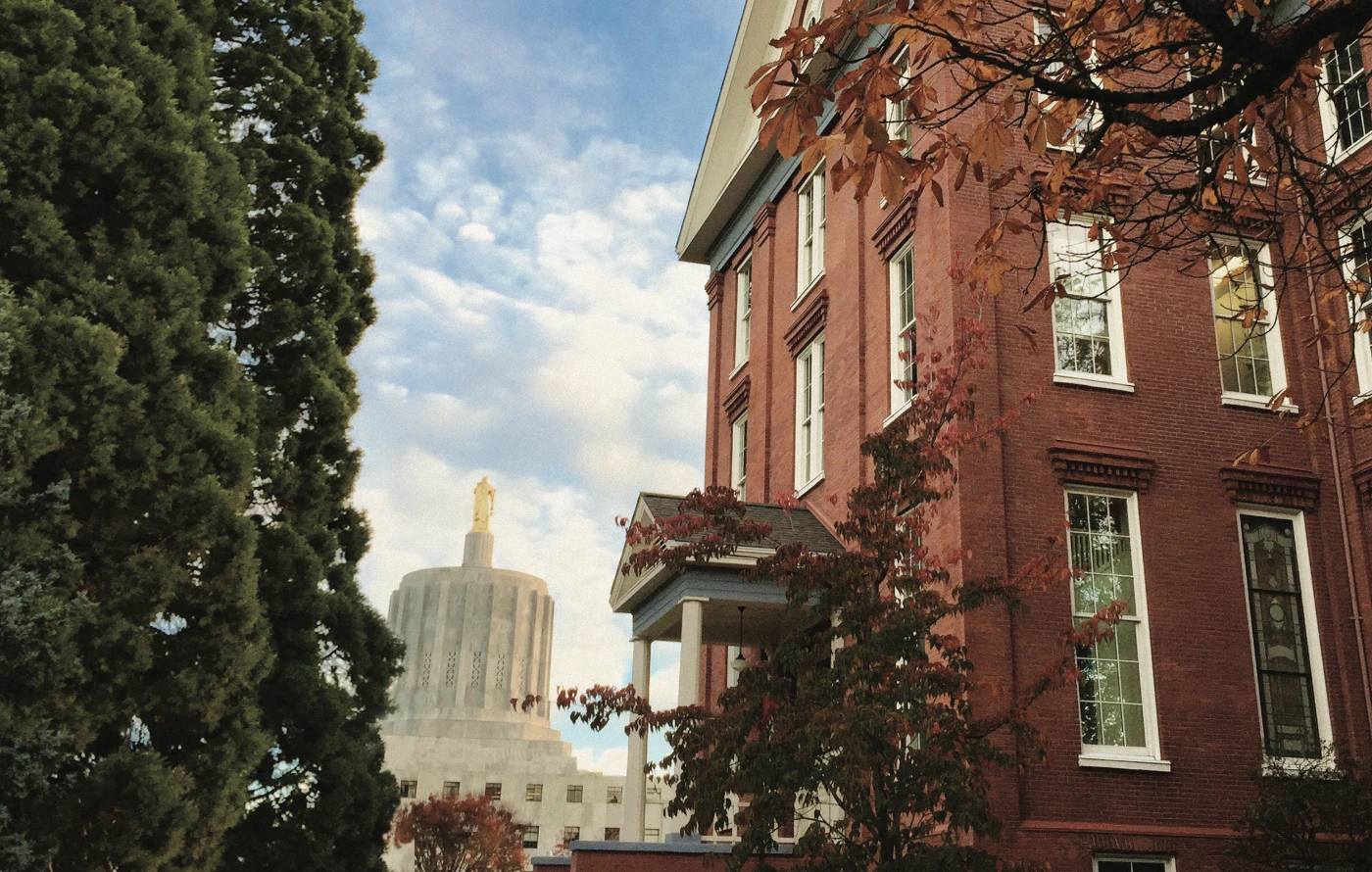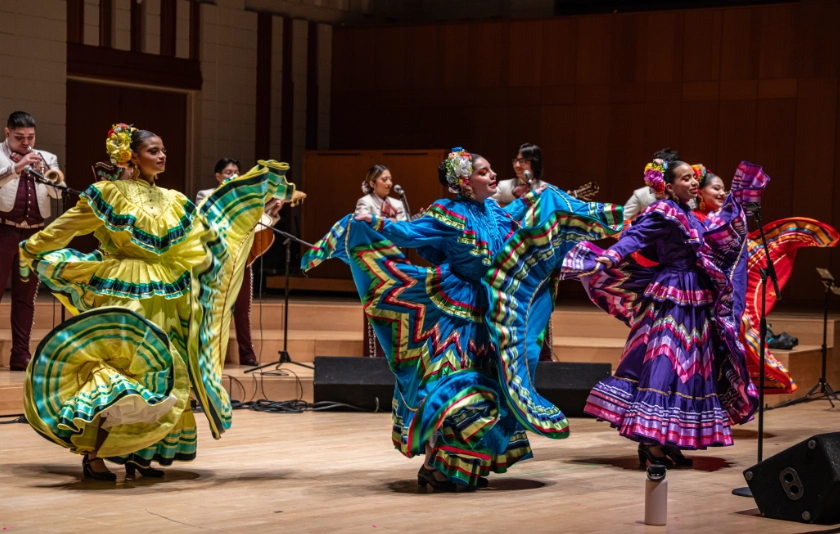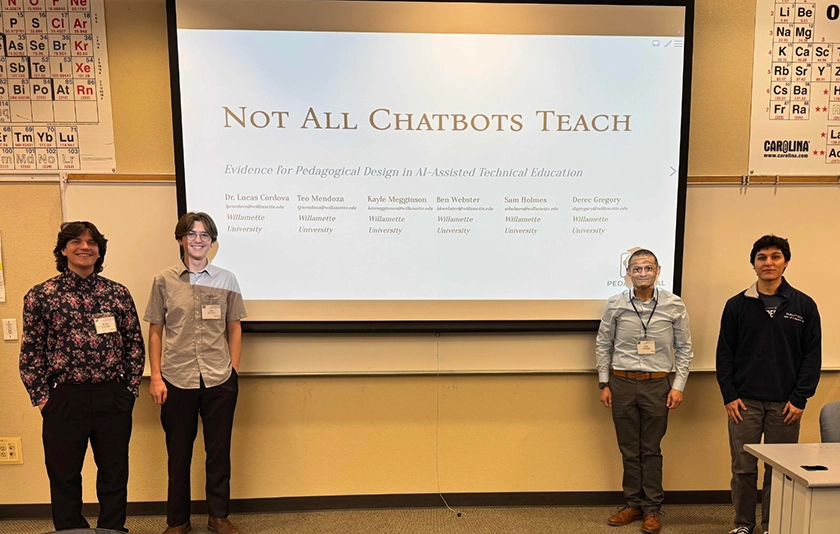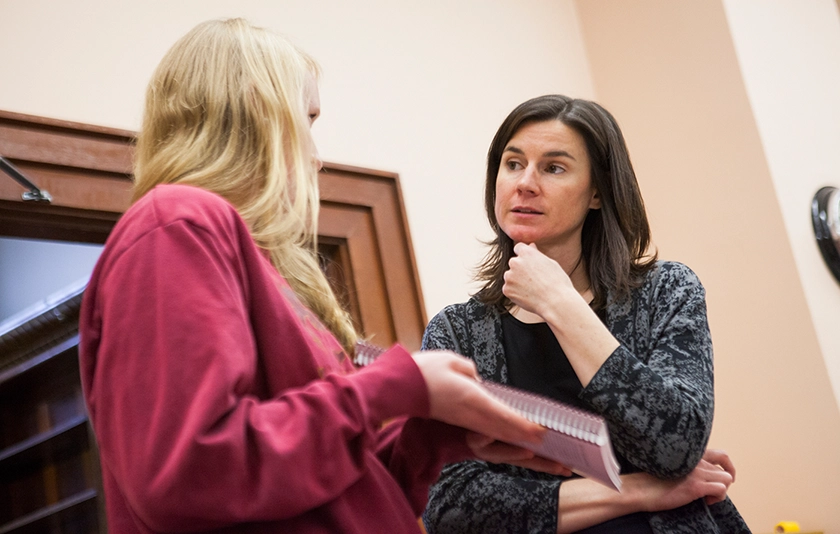For the last 183 years, Willamette University has prepared its graduates to engage in democratic life as political leaders, thoughtful and engaged citizens, artists, advocates, and more.
The teaching and learning across Willamette's five schools makes clear that democracy is much more than just voting and policymaking; it happens in all facets of lives and across our communities.
To explore the varied facets of our democracy, we asked faculty from around the university to tell us a specific example of democracy in action that has stuck with them. Here is what they had to say.
Who Gets To Tell Their Stories?
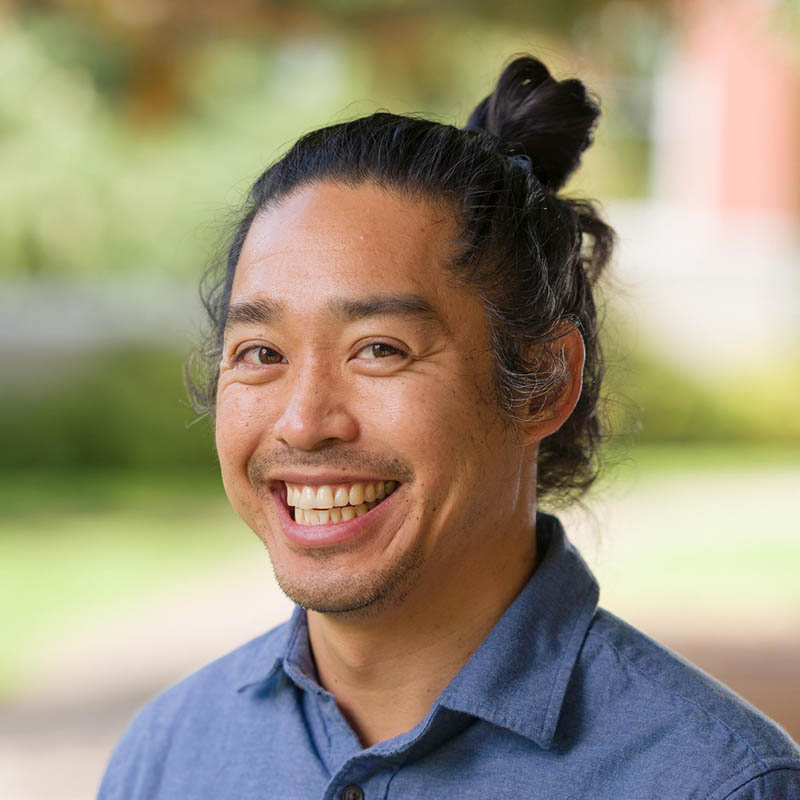 I think of the creation of the National Minority Consortium in 1991 (now the National Multicultural Alliance) that brought together distinct national organizations (Latino, Asian American, Black, Pacific Islander, and Native American media groups) to develop and support diverse programming for public television.
I think of the creation of the National Minority Consortium in 1991 (now the National Multicultural Alliance) that brought together distinct national organizations (Latino, Asian American, Black, Pacific Islander, and Native American media groups) to develop and support diverse programming for public television.
These grassroots organizations forced public television to reconsider who is seen as the “public,” and demonstrates the fact that how and who gets to show and tell their stories is central to a multicultural democracy.
—Vincent Pham, Associate Professor of Civic Communication & Media
Keep It Local
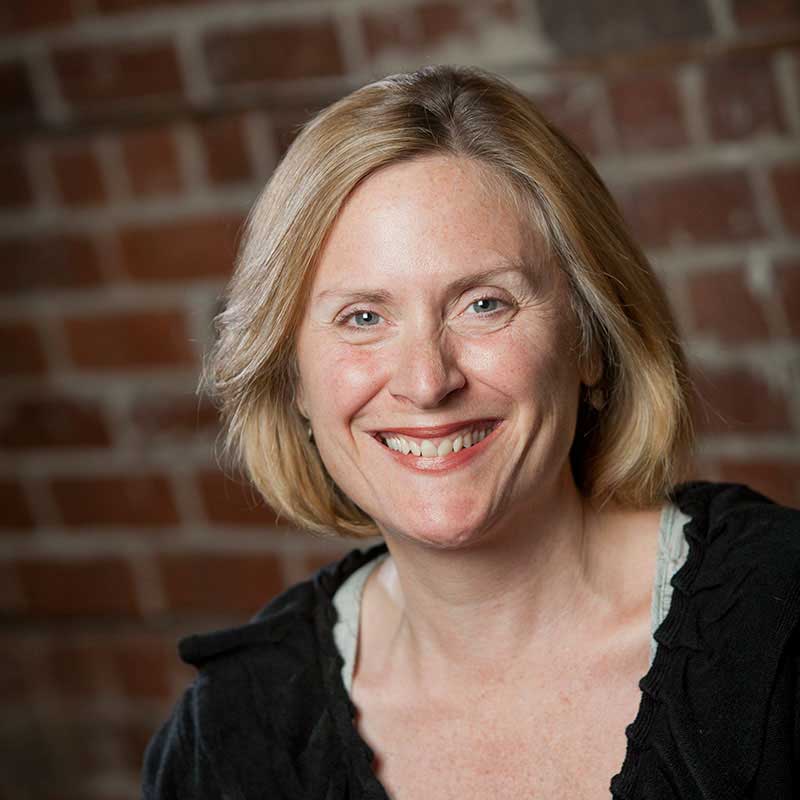 An example of democracy in action that often gets overlooked is town hall meetings and local ballot initiatives.
An example of democracy in action that often gets overlooked is town hall meetings and local ballot initiatives.
What makes these compelling is their tangible, immediate nature. Unlike national politics, which can feel abstract, a town deciding whether to fund a new library, change zoning laws, or allocate resources for schools puts democracy at its most direct. People stand up, argue passionately about issues that will affect their daily lives, vote, and then live with the consequences together.
—Susan Coromel, Professor of Theatre
“People's Capacity to Do Things”
 About 20 years ago, one of the world's top experts on Ancient Athens — Josiah Ober — wrote an article explaining that, in Ancient Greece, the original meaning of democracy (demokratia) likely did not relate to the power (kratos) of the people (demos) to make electoral decisions via majority rule; rather, it denoted the “people's capacity to do things.”
About 20 years ago, one of the world's top experts on Ancient Athens — Josiah Ober — wrote an article explaining that, in Ancient Greece, the original meaning of democracy (demokratia) likely did not relate to the power (kratos) of the people (demos) to make electoral decisions via majority rule; rather, it denoted the “people's capacity to do things.”
This meaning dovetails with the most-striking examples of democracy in action that come to my mind: the heroism of D-Day, the bravery of the Civil Rights Movement, the expansion of education to all, the end of apartheid systems, the everyday courage of first-responders, and the exemplars of civic-minded art, such as Tomasz Sarnecki's famous poster for the Solidarity Citizens' Committee, “High Noon, 4 June 1989.”
None of these examples relates to democracy narrowly construed as majority-rule elections, yet all speak to the ways that a free society striving for liberty and equality can achieve profound outcomes, demonstrate the people's capacity, and justify institutions that spread decision-making authority widely throughout the community.
—Tim Johnson, Grace and Elmer Goudy Associate Professor of Public Management & Policy Analysis
Students Making a Difference
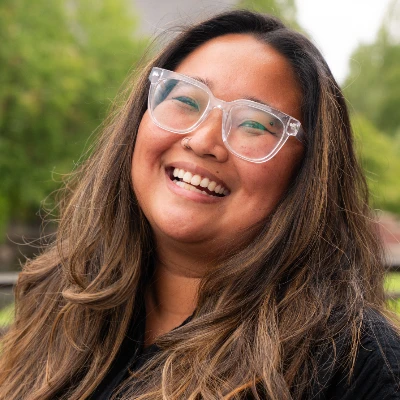 In the last year, I have met with many students who felt like they weren't “doing enough” and wanted to become greater activists. I never tell them what to do or what the “good activist” looks like, but I help guide them to figuring out what they want to do and they come up with their own plan to implement it.
In the last year, I have met with many students who felt like they weren't “doing enough” and wanted to become greater activists. I never tell them what to do or what the “good activist” looks like, but I help guide them to figuring out what they want to do and they come up with their own plan to implement it.
What's stuck with me are their check-ins — their challenges, failures, successes, and overall growth in wanting to be a positive community member.
—Juliane Corpus, Director of Intercultural Engagement & Inclusion
Books for Belonging
![]() I have for 15 years witnessed Street Books, an incredible nonprofit supporting our un-housed community; they have made a mobile lending library for people who can't otherwise borrow books from the Multnomah Public Library. Street Books enacts its philosophy every single day: “...that all people deserve a place to belong, to be known, to have access to safety and security and the resources to thrive.” Streets Books offers readers access to books that otherwise they would not have access to.
I have for 15 years witnessed Street Books, an incredible nonprofit supporting our un-housed community; they have made a mobile lending library for people who can't otherwise borrow books from the Multnomah Public Library. Street Books enacts its philosophy every single day: “...that all people deserve a place to belong, to be known, to have access to safety and security and the resources to thrive.” Streets Books offers readers access to books that otherwise they would not have access to.
It’s not just a place to get books; it doesn’t simply host transactions. It is a library that centers belonging. It offers people all of the gifts that reading brings to our lives — connection, privacy and intimacy, a sense of visibility, and a positioning of the self out into the larger web of beings. As a reader I often feel less alone in the world and more connected to my surroundings, and this experience is constructive and caring and it gives way to other constructive, caring experiences.
—Jay Ponteri, Professor & Chair of Low Residency Creative Writing
Amplifying the Voices of Others
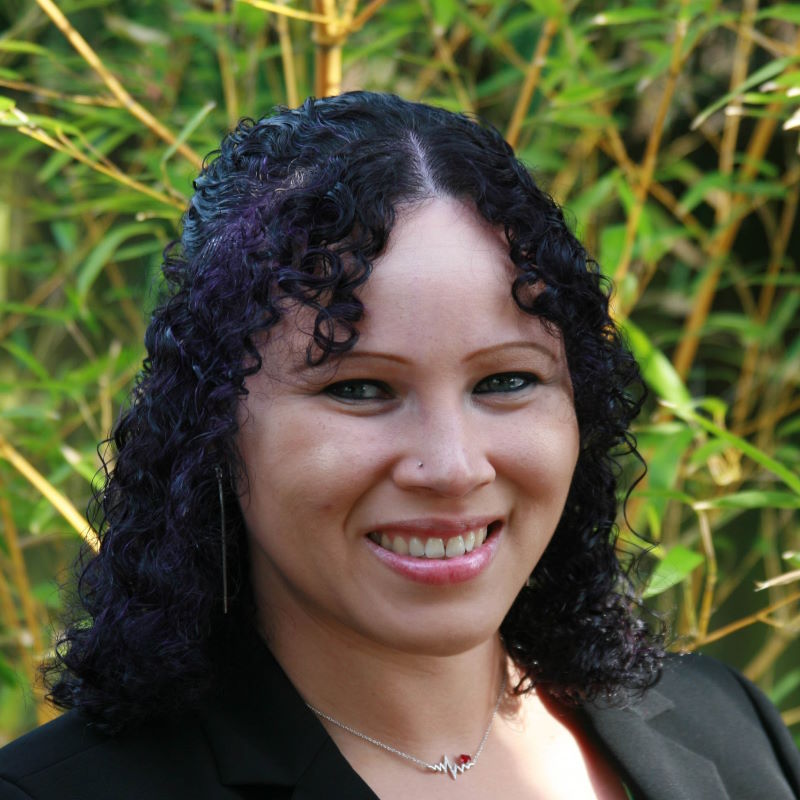 Early in my career at Hewlett Packard, I was reluctant to contribute in technical meetings, often deferring to my senior colleagues in team meetings. Several senior leaders and scientists noticed this tendency and began soliciting my input in these settings. Their advocacy not only empowered me in those moments but served as the foundation of my advocacy for others' voices to be heard.
Early in my career at Hewlett Packard, I was reluctant to contribute in technical meetings, often deferring to my senior colleagues in team meetings. Several senior leaders and scientists noticed this tendency and began soliciting my input in these settings. Their advocacy not only empowered me in those moments but served as the foundation of my advocacy for others' voices to be heard.
My teaching style at Willamette reflects intentionality in ensuring all students' voices are heard and valued. I firmly believe that the deepest learning experiences are ones that feature the richness of everyone's contributions.
—Kristen Gore, Assistant Professor of Data Science
An Ideal and a Spirit
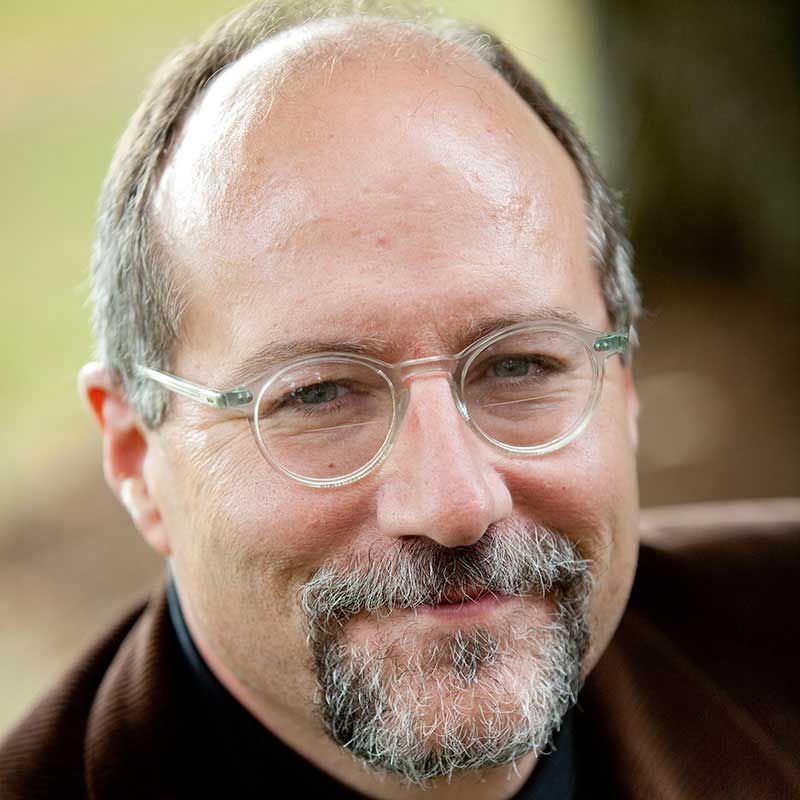 Democracy is not just a system; it is a spirit and an ideal. On the morning of November 4, 2008, my route to work took me past at least four polling places, each one with a line longer than the last, snaking along for blocks. Voters, excited but patient, tired but steadfast, were determined to be part of something historic. That day America moved another step closer to the ideal, and we danced long into the night.
Democracy is not just a system; it is a spirit and an ideal. On the morning of November 4, 2008, my route to work took me past at least four polling places, each one with a line longer than the last, snaking along for blocks. Voters, excited but patient, tired but steadfast, were determined to be part of something historic. That day America moved another step closer to the ideal, and we danced long into the night.
All steps forward are contested, though, and contested it was, and is.
Now, 17 years later we’re still weathering the backlash. But just when polls were telling us that people starting to give up on democracy, millions showed up at “No Kings” rallies across the country, not just in large cities, but in the smallest towns, and in every state, red, blue, and purple. America’s democratic institutions and norms are being challenged, but the American people are having none of it. Democracy is not just a system; it is an ideal and a spirit running through every aspect of American life.
—Stephen Patterson, Atkinson Professor of Religious and Ethical Studies
A Tribute to Communication
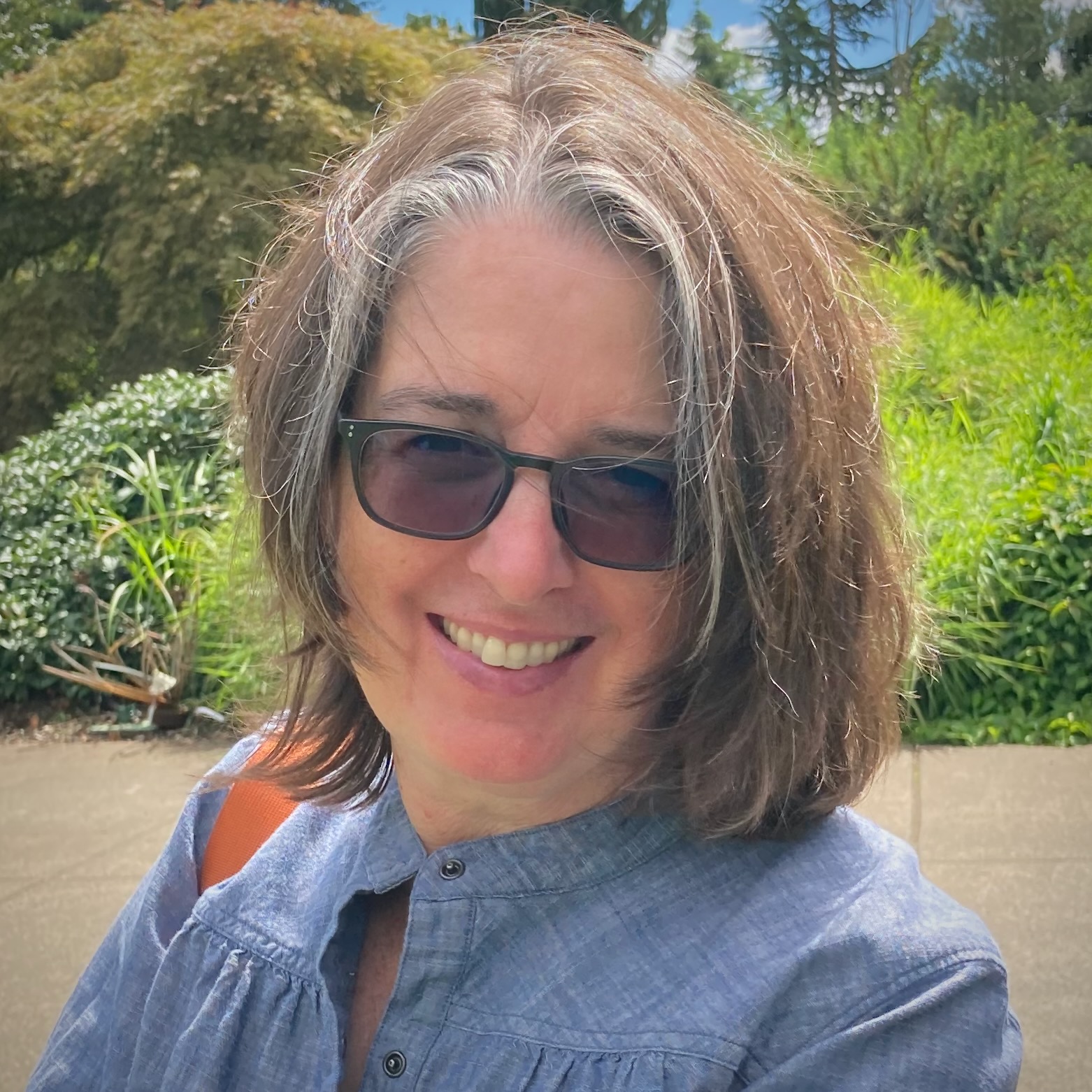 Free, open, and direct communication — aka our first amendment rights — is the cornerstone of democracy in action. The following give me hope: trenchant reporting on national and local concerns (shout out to our student reporters at the Collegian!), peaceful demonstrations expressing the will of the people, and organizing/advocacy efforts to promote a sustainable existence for all.
Free, open, and direct communication — aka our first amendment rights — is the cornerstone of democracy in action. The following give me hope: trenchant reporting on national and local concerns (shout out to our student reporters at the Collegian!), peaceful demonstrations expressing the will of the people, and organizing/advocacy efforts to promote a sustainable existence for all.
–Cecily McCaffrey, Professor of History
